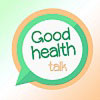Give Me 10 Minutes, I’ll Give You The Truth About Vitamin B12 Deficiency
Vitamin B12 is one of the most essential, yet overlooked vitamins in the world. It plays a major role in the metabolism of each of our body cells, and if we have insufficient amounts of it for a longer period, it can lead to long-term diseases and neurological conditions.
Therefore, it’s crucial that you know the first warning signs of vitamin B12 deficiency so that you can treat it on time and prevent numerous health problems.
Once you learn the first signs of vitamin B12 deficiency, you’ll also read why is it so important to your overall health and which foods contain it in highest amounts.

7 Warning Signs of Vitamin B12 Deficiency
Dizziness
Frequent vertigo and lightheadedness while walking upstairs or downstairs or when standing up from a chair might be a cause for concern, that is, it may be a sign of vitamin B12 deficiency. You should consult your physician for diagnosis and treatment.
Forgetfulness
If you have trouble remembering things like where you’ve put your keys or what the name of your friend is, you might have vitamin B12 deficiency. A lot of older people suspect Alzheimer’s or dementia when they’re actually lacking vitamin B12.
Weak muscles
If your grocery bag feels like thousand pounds, the muscles are probably deprived of the oxygen from erythrocytes. When the muscle cells lack oxygen and when the body doesn’t have enough vitamin B12, the muscles tend to become sluggish or weak.
Pale skin
If you had rosy cheeks, but now you’ve noticed that you’re much paler with a yellowish tone, you might have vitamin B12 deficiency. As a result, the body’s production of bilirubin is higher and therefore, the rosy complexion is replaced with paleness.
Pins and needles
Pins and needles, that is, a condition known as paraesthesia is a tingling, prickling, or numbing sensation in the body, especially in the hands and feet, followed by a feeling of electric shock waves due to the nerve damage caused by a lack of vitamin B12. When you suffer from vitamin B12 deficiency, the production of erythrocytes is reduced and causes low oxygen levels in the nerve tissues.
Fatigue
If you get enough hours of sleep daily, but you still feel tired, you might have problems with B12 deficiency.
Eye problems
Long-term lack of vitamin B12 can cause vision problems. In rare cases, lack of vitamin B12 may lead to optic neuropathy by damaging the optic nerve, which in turn results in lowered central vision, blurry or double vision, light sensitivity, and shadows or tracers.
Health Benefits of Vitamin B12
To better understand the importance of this vitamin, here are its most significant health benefits:
1. Prevents Heart Disease and Stroke
Since heart disease is the leading cause of death in the U.S., taking some extra measures to protect your heart is something everyone should consider. New research has discovered that increased levels of homocysteine is a higher risk factor for heart disease than cholesterol. This non-protein α-amino acid can create inflammation if there’s a lack of vitamin B12. In other words, this vitamin reduced the levels of homocysteine, and with that the risk of heart disease and stroke.
2. Prevents Nerve Damage
Nerves have a natural covering called myelin sheath whose primary purpose is to protect them from toxins and free radical damage. Without this protective covering, nerves can be easily damaged and killed which can result in nerve-related disorders. This is because dead nerves are interrupting the transmission of signals to and from the brain.
3. Supports Energy
Vitamin B12 stimulates the production of energy by keeping your cells happy, healthy, and well-fed. Insufficient amounts of this vitamin starve your cells, making you tired and weak. The metabolism requires vitamin B12 to convert carbs into usable glucose – an essential participant in the production of energy. Therefore, if you’re deficient in this vitamin, you are more likely to suffer from fatigue.
4. Helps Digestion
This vitamin aids in the production of digestive enzymes, thus helping the breakdown of foods in the stomach and supporting a healthy metabolism. It helps foster healthy gut bacteria and removes the harmful bacteria in the digestive tract. This, in turn, prevents inflammatory bowel disease, candida, and other digestive disorders.
5. Helps Produce Erythrocytes and Prevent Anemia
Since this vitamin helps the production of erythrocytes, it can prevent megaloblastic anemia which is manifested by weakness and chronic fatigue.
6. Good for Bones
This vitamin is recommended for osteoporosis patients and anyone who suffers from bone conditions as they have higher levels of homocysteine than those with healthy bones. As we already mentioned, vitamin b12 can reduce the levels of homocysteine, which makes it an ideal supplement for these patients.
You can supply your body with vitamin B12 by eating the following foods:
- Beef and chicken liver— 81 milligrams in 3 ounces
- Salmon— 19.5 milligrams in 108 grams (1 filet)
- Herring—18.7 milligrams in 143 grams (1 filet)
- Mackerel— 15.3 milligrams in 3 ounces
- Sardines— 13.3 milligrams in 1 cup
- Tuna— 9.3 milligrams in 3 ounces
- Trout— 9.1 milligrams in 1 filet
- Organicyogurt — 1.3 mg in 1 container of plain Greek yogurt
- Turkey— 1.1 milligrams in 3 ounces
- Rawmilk — 1 milligram in 1 cup
- Beeftenderloin — 0.9 milligrams in 3 ounces
- Lamb— 0.8 milligrams in 3 ounces
Other sources of vitamin B12 are cereals, plant-based milk, and cheese.
As you can see, vitamin B12 plays an important role in our overall health and can protect us from various health problems and diseases. That’s why recognizing the early symptoms of vitamin B12 deficiency is crucial to treat it as soon as possible and prevent further health complications.
Sourece: www.healthandlovepage.com
thehealthguide.org





